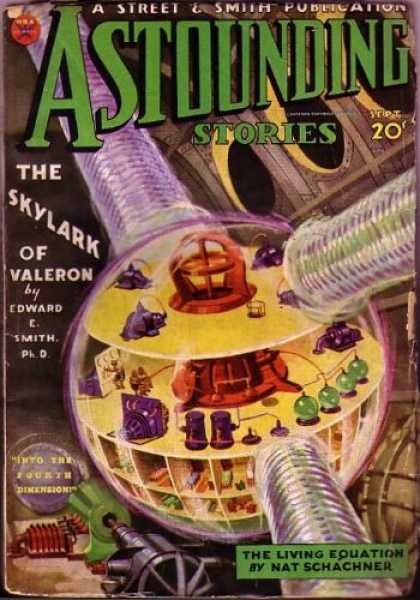|
LITR 4632: Literature of the Future |
Sample Student Final Exams 2011
|
 |
Haylie Unger
Not Just Comfort or Confrontation
So, I maintained in my earlier essay “Comfort or Confrontation” that literature of the future, as a literature of ideas, would naturally either comfort the reader or cause him discomfort. I now think that perhaps neither is the only response necessary to literature of the future, or any literature for that matter. Is it possible to have your mind awaken, aroused by literature without responding with dread or felicity?
This is certainly the response I had to some of the selections read in the latter section of the class. While recognizing the effect of current technology on society, I had never stopped to consider what might be the eventual result if the steady wave of technology Americans currently embraces is not halted. After reading “Chrome,” I was quite unsettled. For one reason, I had trouble distinguishing the world of reality from that of virtuality. Was Rikki in the computer or outside of it? I spent half the story trying to figure out if she was even human only to discover that she was an actual human who made her living by spending the majority of her life in the virtual world. My response to this story caused me to think about the line between the perception of reality and actual reality. If I couldn’t figure out what was real in a story, I wondered if this might be a condition that people who spend excessive amounts of time in the virtual world develop. Will the lines between the real and the virtual become so blurred that it’s impossible for us to distinguish them?
Similarly, “House of Bones” provoked me to think without disconcerting me. I wondered, “How much do we really know about the past?” If humans thousands of years ago were communal beings, as described in “House,” then have we progressed, digressed, or regressed? The comforts within the society of beings in “House” are vastly different from those witnessed in other texts, but yet they emphasize compassion and support of others. Our future literature readings set in a high-tech future emphasize neither of these traits. However, the future ecotopia reading, “Chocco” certainly points to the development of these characteristics among the citizens. When Jon interrupts Mikal without possessing the conversation stick, the elder Memory Keeper is shocked. I noted how this concern for what we might call “manners” differs from that seen around us in society today, without feeling dread or consolation.
That is not to say that none of our selections provoked me to some degree of unrest. “The Onion and I” caused me to shudder when I noted the psychological effect of the virtual world on the real human. At one point, the narrator becomes concerned that perhaps he is not even a real boy. In a similar manner, Bobby in “Burning Chrome” seems much more invested in the world of virtuality than that of reality. He is consumed by his plans to bring down Chrome without much regard for his decisions effect on the world of reality. I think of people I know who spend large amounts of time online gaming and wonder that we have not conducted research into the effects of this proclivity on the individual psyche.
Another selection that upset me in terms of my comfort with modern society was “Hinterlands.” The theme of the over-reaching desire of humankind to know is one that is all too familiar. In this tale, humans desire to discover (their curiosity) was so pronounced that they were repeatedly willing to die for this knowledge. Although such extremes may not be typical of the human condition, seeing them in future literature is definitely disconcerting.
On the other hand, rather than being provoked I was comforted by my reading of alternative literature. In “Forking Paths,” the lines “the author . . . ought to impose on himself a future as irrevocable as the past” caused me much peace. It is true, surely, that as one goes forward and makes decisions he should determine to follow through as if those have already been done because, in another time and place, they have been completed. Also, the very idea presented in alternative futures that one need not feel too much unrest because there are many alternative endings to each scenario appeases the anxious workings of the over-burdened soul.
So, in conclusion, future literature definitely has its place as a literature of thought in our libraries. Some may cause us to feel confronted with heavy decisions, some may comfort us and give us a degree of peace, and other pieces may mere cause us to think more deeply about how our choices effect our future and what, exactly, we want that future to look like.
